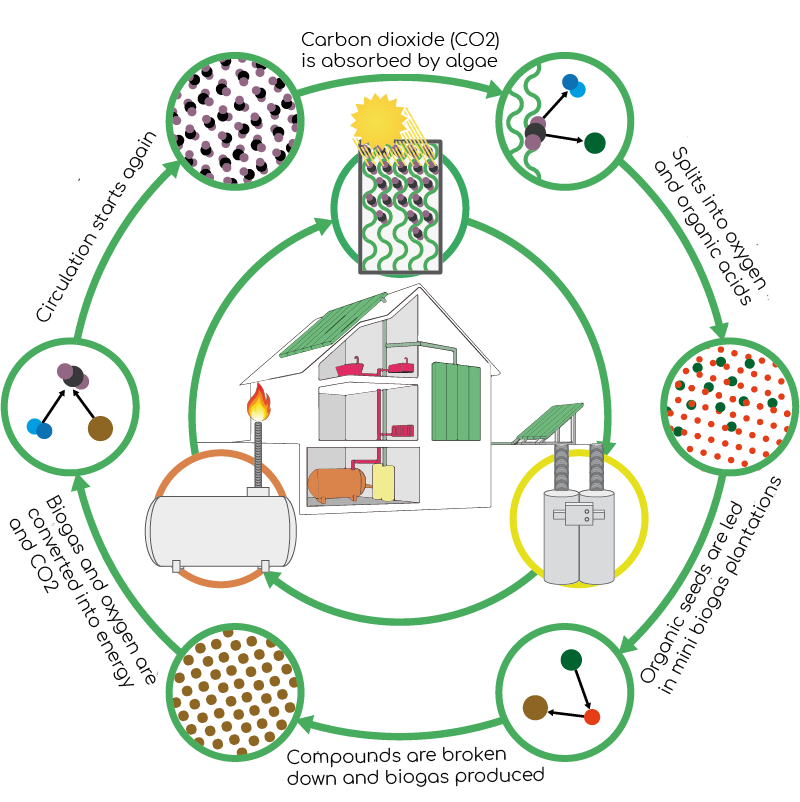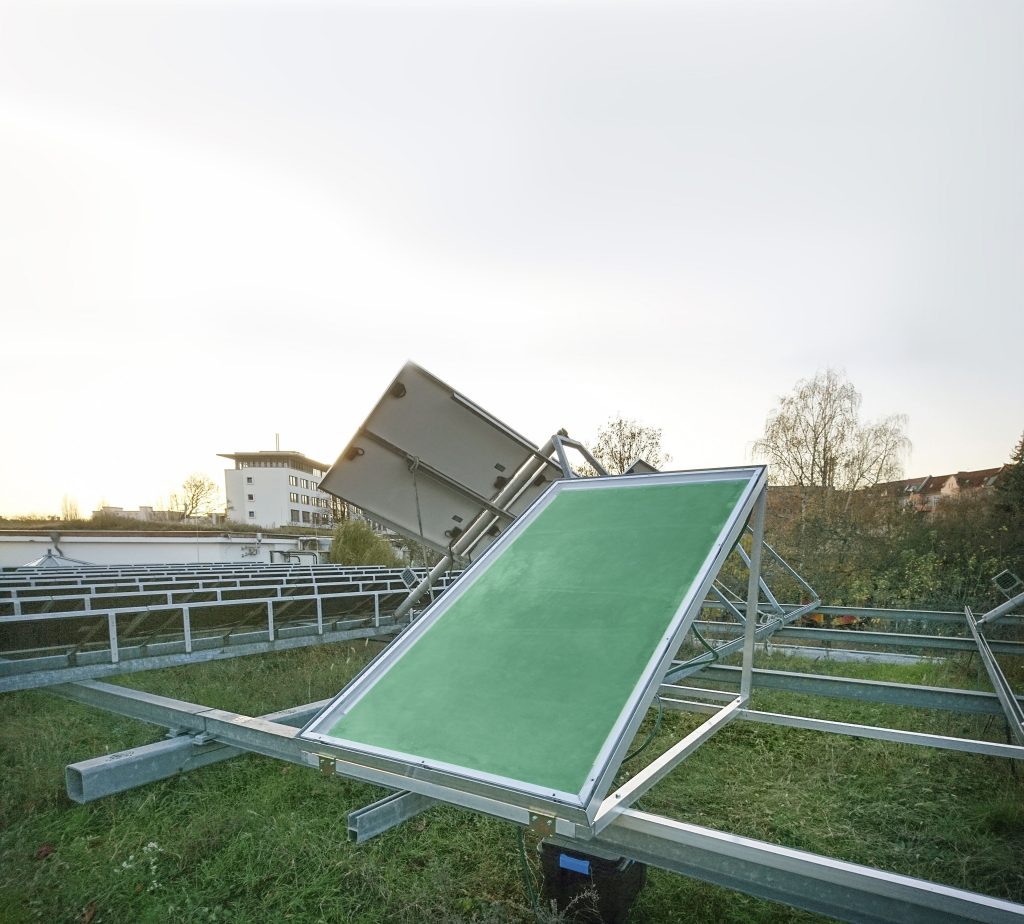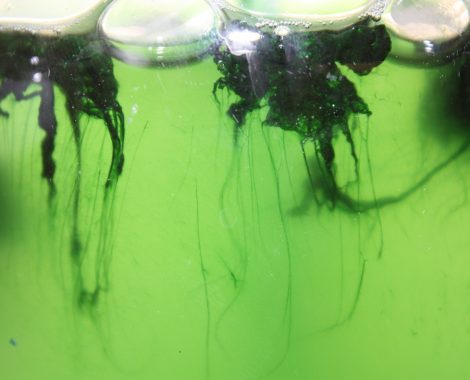
biogas
PROJECT
In our AlgBioga project, we are researching solar biogas production using phototrophic bacteria as an innovative, climate-friendly alternative to a conventional energy supply. Our solar gas plants should enable the end consumer to produce biogas for their own energy household and independent of vegetable biomass. In a two-stage process, pure biomethane is produced from sunlight, CO2, O2 and some trace elements. This should enable the consumer to save energy and costs and to supply energy self-sufficiently.. The consumer is not only to be made independent of the price fluctuations of the market, but he is to be even actively involved in the energy cycle.


INNOVATION
So far, there are only a few ways of generating one's own energy for the household independently of conventional fuel supplies. Solar technology consisting of solar thermal and photovoltaic systems is the most widespread. Conventional biogas plants, on the other hand, are unprofitable and unaffordable for the average household due to the necessary procurement of biomass. Heat pumps are only able to relieve existing heating systems after high investment costs and thus save heating costs. Solar thermal energy has not yet developed sufficient heat accumulators. Photovoltaics and wind power have in common that on the one hand the electricity cannot be converted effectively into heat and on the other hand the electricity itself cannot be stored well. With existing storage systems, high investment costs coupled with low capacity and technical complexity are usually a challenge for the end user.
In solving this problem, the production of biogas using phototrophic and methanogenic microalgae or bacteria is an innovative and promising approach. Biogas is best suited as an energy source for self-sufficiency, as it burns in a climate-neutral way due to the photosynthetic CO2 fixation that precedes it and is the easiest energy to store. Currently, biogas is obtained from the fermentation of plants that have to be cultivated on fields beforehand. The area used for this is in direct competition with food production and the biogas produced still has to be transported to the end consumer in an energy-intensive way. In addition, the biogas produced by the fermentation of the plants is contaminated by nitrogen oxides, NH3 and sulphur compounds.


In contrast, the system underlying this project is not based on the ineffective construction of biomass, from which energy is obtained by fermentation or chemical conversion, but on the use of microorganisms as molecular power plants. These enable the production of pure biomethane, thus eliminating the need for costly purification. In addition, by using a combination of phototrophic cyanobacteria and methanogenic bacteria, the biogas can be obtained and stored directly by the consumer, so that no energy-intensive transport is necessary.
ERDF FUNDING
The project "AlgBioga - Research into an algae biofilm plant for urban industrial-urban biogas production" (project duration: 08/2017 to 10/2019) is funded by the Berlin Programme for Sustainable Development (BENE) with funds from the European Fund for Regional Development and the State of Berlin (funding number 1183-B5-0).

